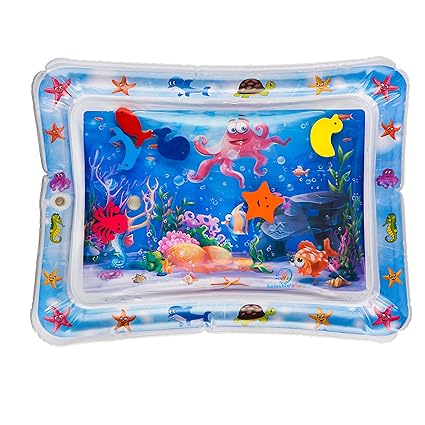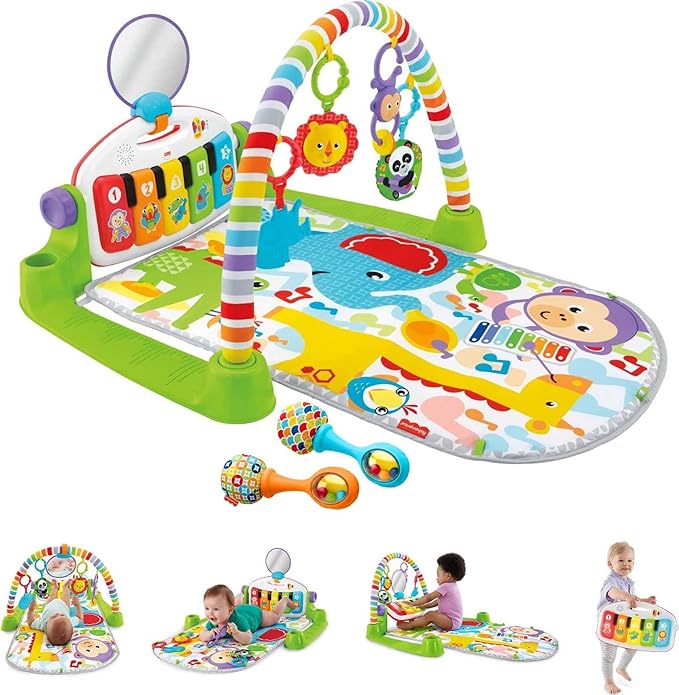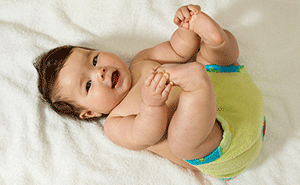One of the most exciting milestones in a baby's first year is learning to roll over. This movement is a critical step in their motor development, setting the stage for crawling, sitting, and eventually walking. But when exactly do babies typically start to roll over, and what should parents expect during this time?
Other Topics You Might Like
Helpful Products You Might Like

Splashin'kids inflatable premium tummy time water mat For Baby

Skip Hop Baby Infant Crawling Tummy Toy

Fisher-Price Baby Gym Playmat
"(Paid Links)" 
The Typical Age for Rolling Over
Babies usually begin to roll over between 4 and 6 months of age. Some might start as early as 3 months, while others may take a little longer. Rolling over requires a combination of strength, coordination, and motivation, which develops at different rates for each baby. The process usually begins with babies learning to roll from their stomach to their back, which is slightly easier due to the head's weight and gravity. Rolling from back to stomach, however, requires more strength and control, which they typically master a few weeks or months later.

Early Signs of Rolling Over

Before a baby successfully rolls over, you'll notice several key developments. Babies start by gaining control of their head and neck muscles, which is crucial for rolling over. Tummy time is essential during this stage, as it helps strengthen the muscles needed for rolling. Babies will also begin to push up on their arms and kick their legs, rocking side to side as they explore their movement capabilities. These early attempts may look like mini push-ups or rocking motions, and they indicate that rolling over is just around the corner.
How to Encourage Rolling Over
Parents can encourage rolling over by providing plenty of tummy time, which helps build the necessary muscle strength. Placing toys just out of reach can also motivate babies to move and explore their ability to roll. You can help your baby practice by gently guiding them from side to side, making the motion familiar and less intimidating. Remember, every baby develops at their own pace, so patience and encouragement are key.

Safety Considerations
As babies become more mobile, it's essential to ensure their environment is safe. Never leave your baby unattended on a bed, couch, or any elevated surface where they could roll off. Always supervise your baby during tummy time, especially as they begin to roll over. It's also a good idea to baby-proof the room, removing any sharp objects or hazards they could reach as they start to explore.
When to Be Concerned
While most babies will learn to roll over by 6 months, it's important to remember that each child is unique. However, if your baby hasn't shown any interest in rolling over by 6 months or seems unable to move their limbs with ease, it may be worth discussing with your pediatrician. In some cases, delayed motor skills can indicate underlying issues, but often, it's just a matter of time and encouragement.
Rolling Over as a Sign of Development
Rolling over is not just a fun milestone; it's a significant indicator of your baby's overall development. It demonstrates growing muscle strength, coordination, and an increasing awareness of their body and surroundings. This movement also marks the beginning of your baby's transition from being stationary to becoming a more active explorer of their environment.
What Comes Next?
After mastering the art of rolling over, your baby will soon be on the move in other ways. Crawling usually follows within a few months, although some babies may skip crawling altogether and move straight to pulling up and walking. Regardless of the sequence, rolling over is a crucial step that opens the door to a whole new world of exploration and movement.
Conclusion
In conclusion, rolling over is an exciting milestone that typically occurs between 4 and 6 months. It marks the beginning of your baby's journey toward greater mobility and independence. By providing ample tummy time, encouragement, and a safe environment, you can support your baby's development and help them achieve this important step in their growth. Remember, every baby is different, so celebrate each small success as your little one learns to navigate their world.
